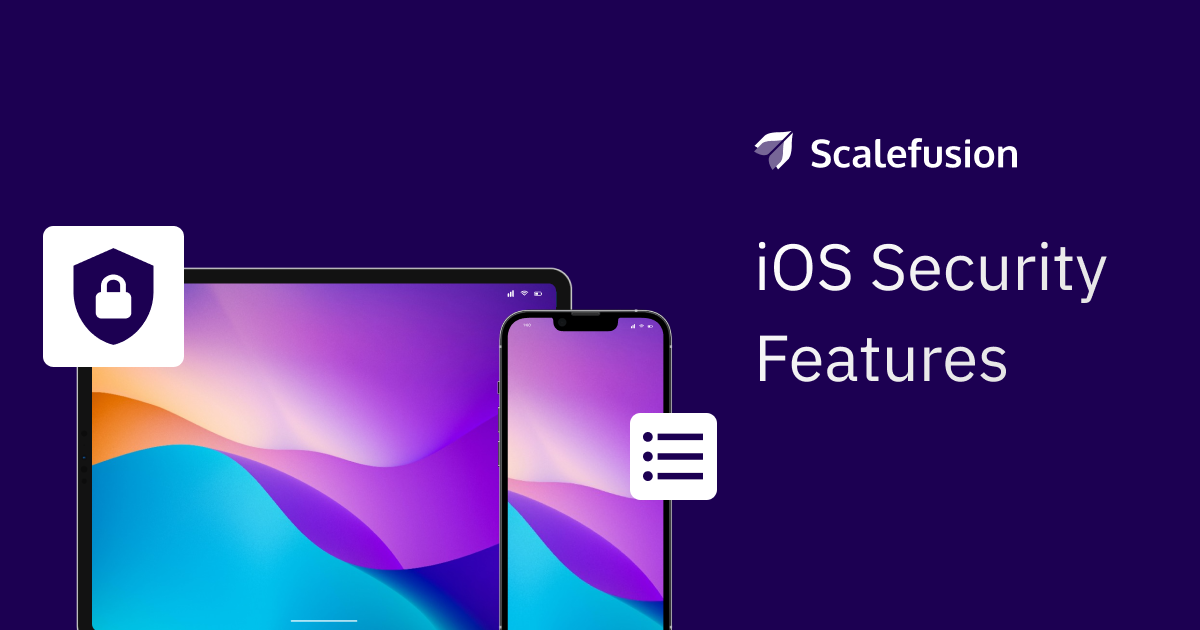Won’t you agree that mobile devices have become as essential to our daily routines as our morning coffee? We use them for everything from managing schedules to handling sensitive business information. Consider a situation where you’re at a cafe, your phone buzzes with a notification, and without a second thought, you check it. Maybe it’s a quick email, a task update on your latest project, or a message from a colleague. You tick off your work tasks from your phone. Convenient, right?
But with this convenience comes a catch. Just as you lock your front door to keep your home safe, securing your mobile devices is important to protect your personal and business data from prying eyes. The growing dependency on mobile technology makes these devices prime targets for security threats, and without proper safeguards, you (and your organization) might find yourself vulnerable to data breaches and other security risks.
This is where mobile security audits come into the frame. These audits are a thorough inspection of your digital “front door,” ensuring that your mobile devices and data are protected against potential threats. By regularly evaluating your mobile security, you can stay one step ahead and safeguard your business information effectively.
In this blog, we’ll explore why mobile security audits are essential for protecting your business data and ensuring the security of your devices. We’ll walk through what these audits involve, the benefits they offer, and the role of mobile device management (MDM) in mobile security audits to stay ahead of potential threats.
Understanding Mobile Security Risks
As we mentioned, mobile devices are indispensable tools for both personal and professional use. From accessing sensitive business documents to conducting financial transactions, these devices hold a wealth of valuable information. However, this comfort also introduces significant risks.
- Mobile devices often lack the same level of protection as traditional desktops or laptops, making them easier targets.
- The nature of mobile use such as constant connectivity, usage in public spaces, and the blending of personal and professional activities can expose devices to a variety of threats, for example, phishing attacks, malware, and unauthorized access.
- Mobile devices are frequently connected to shared or public Wi-Fi networks outside the corporate environment, increasing their exposure to security threats.
Ignoring these risks can lead to severe consequences including data breaches, and financial losses, and can damage your business reputation. It is hence essential to implement comprehensive security measures tailored specifically for mobile environments.
What is a Mobile Security Audit?
A mobile security audit is a health checkup for your mobile devices and applications. Just as regular checkups can help you catch potential health issues early, a security audit helps identify vulnerabilities in your mobile ecosystem before they can be exploited.
During a mobile security audit, various aspects of your mobile environment are thoroughly examined to ensure they are secure and compliant with industry standards. This includes:
- Evaluating how data is stored and transmitted
- Checking the effectiveness of authentication mechanisms,
- Ensuring that third-party integrations are secure.
The goal is to uncover potential security risks and provide actionable insights to strengthen your mobile security stance.
By conducting these audits regularly, businesses can stay ahead of evolving threats and ensure that their mobile devices and applications are as secure as possible. It’s an essential practice for any organization that relies on mobile technology to conduct its operations.
What Do Mobile Security Audits Cover?
A mobile security audit is comprehensive, covering multiple aspects of your mobile environment to provide thorough protection.
Here’s what these audits typically confine:
- Data Storage: This involves reviewing how sensitive data is stored on mobile devices and applications. The audit checks for proper encryption and secure storage practices, ensuring that data is protected from unauthorized access.
- Cryptography: Cryptography is necessary for safeguarding data both at rest and in transit. The audit evaluates the encryption methods used, ensuring they are up-to-date and effective against current threats.
- Authentication: Strong authentication mechanisms are vital for verifying user identities and preventing unauthorized access. The audit examines the effectiveness of these mechanisms, including passwords, biometrics, and two-factor authentication.
- Communications: Secure communication channels are essential for protecting data as it travels between devices and servers. The audit checks for secure transmission protocols, such as SSL/TLS, and ensures that data is not susceptible to interception or tampering.
- Third-Party Libraries: Many applications rely on third-party code and libraries. The audit assesses the security of these components, ensuring they do not introduce vulnerabilities into the application.
- App Logic: The internal logic of an application can sometimes harbor vulnerabilities. The audit scrutinizes the app’s code and functionality to identify potential flaws that could be exploited.
- Session Hijacking: This involves reviewing how user sessions are managed, particularly focusing on session tokens and their security. The goal is to minimize the risk of session hijacking, where an attacker takes over a user’s session.
- Regulatory Compliance: Ensuring that mobile apps and devices comply with relevant regulations and industry standards is crucial. The audit checks for adherence to data protection laws, industry-specific regulations, and best practices.
Benefits of Conducting Mobile Security Audits
Conducting regular mobile security audits offers several benefits, making it a vital practice for safeguarding your mobile environment. Here’s how these audits contribute to your overall security strategy:
1. Identifying Vulnerabilities
A thorough mobile app security audit helps detect potential weaknesses in your applications and devices before malicious actors can exploit them. By uncovering and addressing these vulnerabilities early, you can prevent potential breaches and secure your mobile assets more effectively.
2. Ensuring Compliance
Many industries require adherence to specific regulations and standards. An application security audit ensures that your mobile applications and devices meet these regulatory requirements. This not only helps in avoiding legal penalties but also demonstrates your commitment to maintaining high-security standards.
3. Improving Security Posture
Regular mobile app audits strengthen your overall security framework. By identifying and addressing issues, you can enhance your security structure and reduce the risk of data breaches. This proactive approach ensures that your mobile environment remains resilient against emerging threats.
4. Cost Efficiency
Investing in mobile security audits can save money in the long run. By preventing costly breaches and security incidents through proactive risk management, you avoid expenses related to remediation, legal fees, and reputational damage. The cost of the audit is a small price to pay compared to the potential costs of a security incident.
5. Enhancing MDM Effectiveness
Integrating mobile audit software with your MDM solution provides additional layers of security and insight. This synergy improves the effectiveness of your MDM strategy by offering detailed reports and actionable insights, helping you manage and secure your mobile devices more efficiently.
Role of MDM in Mobile Security Audits
MDM plays an essential role in improving the effectiveness of mobile security audits. By integrating MDM solutions, businesses can achieve a more comprehensive approach to mobile security. Here’s how MDM contributes:
1. Centralized Management and Visibility
MDM platforms provide centralized management of all mobile devices within an organization. This centralization ensures that all devices are monitored from a single point, offering clear visibility into their security status. By using mobile audit software in conjunction with MDM, you can track compliance and security across all devices more effectively.
2. Real-Time Monitoring and Alerts
With MDM, you can continuously monitor the security status of mobile devices in real time. The platform provides alerts for suspicious activities, security breaches, or policy violations. This real-time monitoring is vital for identifying and addressing potential issues promptly during a mobile security audit.
3. Policy Enforcement and Compliance
MDM solutions enable the enforcement of security policies across all mobile devices. This includes managing access controls, data encryption, and application whitelisting. During a mobile app audit, MDM helps ensure that policies are uniformly applied and adhered to, aiding in compliance with regulatory requirements and security best practices.
4. Remote Security Controls
MDM offers remote capabilities for managing and securing devices. This includes remotely locking devices, wiping data, or enforcing security settings. Such remote controls are invaluable during a mobile app security audit, allowing you to address security concerns quickly and efficiently from any location.
5. Reporting and Documentation
MDM solutions facilitate comprehensive reporting and documentation of security findings. This includes detailed reports on device status, policy compliance, and audit results. Effective reporting through MDM is essential for documenting the outcomes of a mobile application security audit and for planning subsequent security measures.
6. Authentication and Authorization
MDM solutions often integrate with Identity and Access Management (IAM) solutions to enhance both authentication and authorization processes. By ensuring that only authorized users can access sensitive mobile applications and data, MDM strengthens mobile security audits. With IAM, businesses can enforce multi-factor authentication (MFA) and role-based access controls (RBAC), ensuring that each user has the appropriate level of access during the audit.
Securing Your Mobile Ecosystem: The Role of Audits
Ensuring the security and efficiency of your mobile devices is more important than you think. From managing device access and user profiles to securing data with advanced encryption and certificate management, each aspect plays a vital role in safeguarding your organization’s assets.
Scalefusion’s comprehensive suite of features, such as pin rotation, and certificate management, provides a strong framework to streamline these processes and enhance overall security. By integrating an MDM solution like Scalefusion, you can address key challenges and optimize your mobile device management strategy.
Discover how Scalefusion can help you achieve your security goals and improve your IT management. For a secure mobile management experience, contact our experts and book a demo to know more.
Sign up to take a 14-day free trial now!


